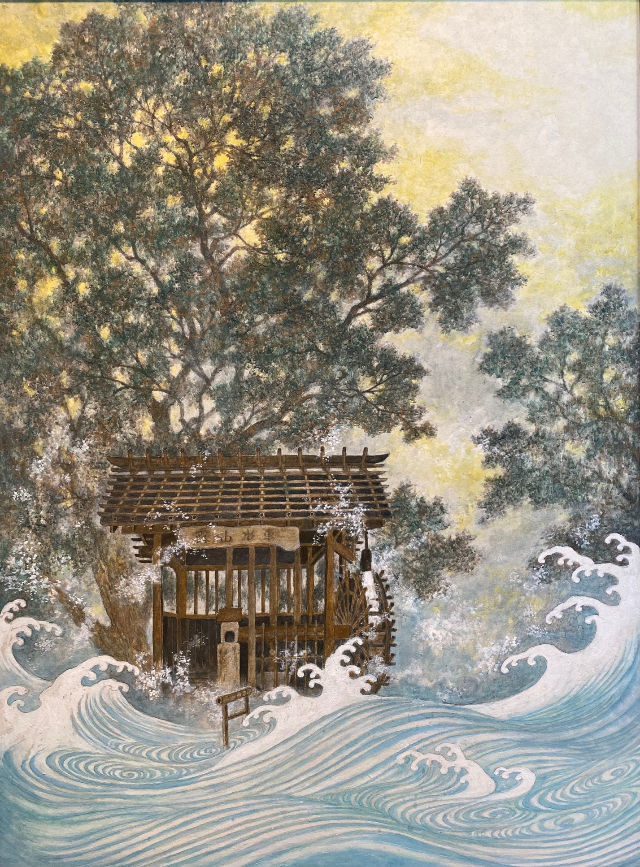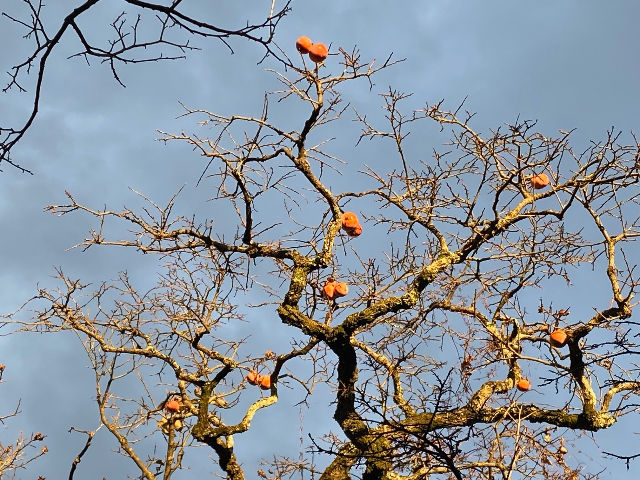NOTHING IS WASTED – A Weeding Life
- Rebecca Otowa
- Apr 28, 2021
- 5 min read

(A correction to the last blog – awa is not a nut like chestnut, but a type of millet. Excuse the error.)
I don’t remember when it was that I heard or read, “There is no longer any such place as ‘away’, as in ‘throw something away’”. Whatever you want to get rid of, it must go somewhere. And it’s important to choose consciously where that somewhere will be. In this time, when we are more than ever aware of Earth and the environment, we should keep this in mind.
The time of weeding every day is now upon us here in the countryside. Various weather occurrences contributed to the weeds being both suddenly appearing and ferociously fecund this year. If I don’t want my house to look uninhabited, I have to weed; also, if I want to plant other things such as vegetables, I must clear the patch – first by weeding and then by cultivating (plowing).
Nature is forgiving, but it also has a rigid timetable. Seeds, including those of weeds, germinate and grow according to cues from temperature, angle of sunlight, and available nutrients and water. Thus, the weeds I pull vary according to the season. Spring weeds are fluffy above and below; they usually have many small roots growing in a clump. In contrast, summer weeds are much stronger and have either fewer roots, or a single large deep root. The battle to stop weeds from growing in the garden is a losing one. Far better to figure out how weeds can work for us.
So, finally, we arrive back at the topic I introduced at the beginning. What to do with weeds? Do they serve any purpose, or are they just trash to be “thrown away”? Well, from one perspective, they are the embodiment of the nutrition in the soil. They have used some nutrients to germinate and grow, so just pulling them and throwing them “away” would gradually lessen the soil’s nutrients. We put these nutrients back with fertilizer, etc., but it is edifying to think of the weeds themselves as fertilizer. The garden sometimes tells me things, and over the past few years it has told me that pulled weeds, especially those that haven’t yet seeded out, do make excellent fertilizer. I pile the weeds in unused spaces and cover them with straw; a year later, the patch has turned into the most lovely soil. In this way I can rejuvenate soil that has become tired from being cultivated. I also make bigger piles of weeds in other locations, and digging deep into these piles, I find they have also become soil that can then be returned to the veggie patch. Unseeded weeds also make good mulch (vegetable matter that is tucked under the leaves or between plants to prevent other weeds growing and keep the soil moist). So we see that, far from being trash, pulled weeds can do a lot of good in the garden. It’s an old and effective form of recycling. Even weeds should not be wasted.
This is how I encourage myself, as I inch my way across the property, covering maybe a couple of square meters each session (I usually need a break after 90 minutes or so). A complete sweep of the property usually has to be done at least three or four times between spring and late fall; so I have probably gone over the whole place about 100 times since I first came to live here. Sometimes I just say “Enough” and hire other little old ladies to do some of the work for me; but this is expensive, so I usually try to do it myself with the help of other family members.
In the first few years I kneeled to weed; my body doesn’t have the same proportions as my neighbors, who can squat with their feet flat on the ground (how about you? Can you do this? I can’t). Later I began to sit on a small stool, or even bend over from the waist, which became both more possible and more comfortable as I aged. In yoga this posture is known as the Forward Fold, and if you can reach down and tuck your fingers under your feet in this pose, you can weed standing up. I vary my posture every ten minutes or so to spare my poor bod.
Other important weeding accessories include gloves (I have tried various kinds over the years); some sort of tool with a metal point and, ideally, serrations to cut through the roots; a hat; a towel for wiping off sweat; a basket or bucket to hold the pulled weeds; and (for early morning and evening weeding in summer) something to chase mosquitoes away.
Another important activity I do at the same time as weeding is collecting rocks. Because our house is at the foot of a mountain, our soil is mixed with thousands of rocks of various sizes, and walnut-sized rocks are handy for laying paths; for every basket of weeds I collect, I also collect 20 or 30 rocks, which are transferred to whichever path I am constructing at the moment.
How can I bear to do this repetitive, thankless work? Well, weeding gives me a chance to connect with the various little creatures that share my domain. Beetles, spiders, earthworms, flying bugs of all kinds, the occasional centipede or frog – they are familiar faces that appear every year, and for me, they indicate the health of my garden. (Bees are getting more scarce, as more farmers resort to chemical insecticides and herbicides – this is a scary worldwide trend, since a lot of pollination is carried out by bees, and pollination means food. I treasure them when I find them, and grow the plants they enjoy to lure some to my space.)
Also, it’s an activity whose results can be immediately seen. A tidy garden is a happy place to look at or walk through. The pulled weeds are doing their job, turning into fertilizer under their covering of straw, and the cultivated plants are able to grow without interference. I realize that there are some methods of vegetable cultivation where weeds are left alone. But this is how my mother-in-law taught me to do it, and how my neighbors do it. So until I can no longer sit down on my stool, or do the Forward Fold, I guess you will find me, from April to November, doing the job that is always with us.
I have a feeling I have said some of these things in another blog post. Please forgive me. A farmer’s life is full of such repetition.



I find weeding quite satis
I actually enjoy weeding my teeny tiny Kyoto garden -- and I 've started composting weeds, too.